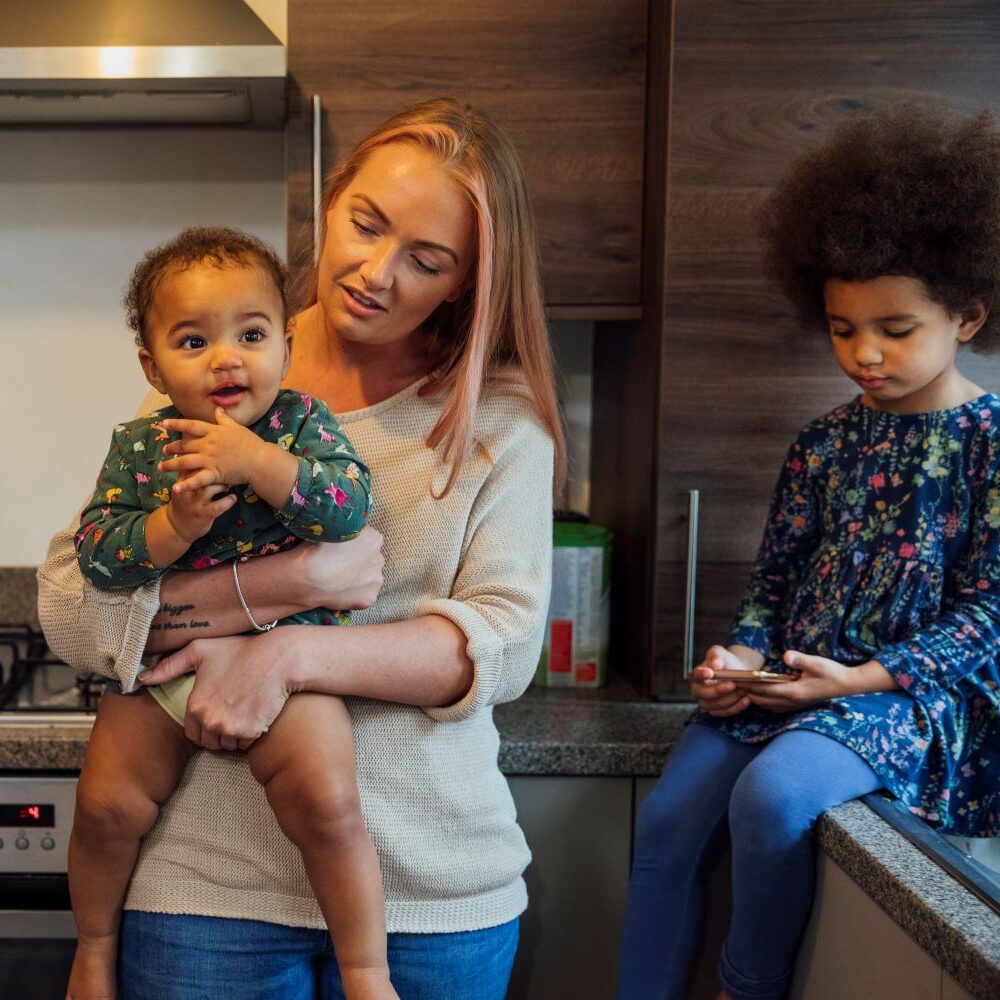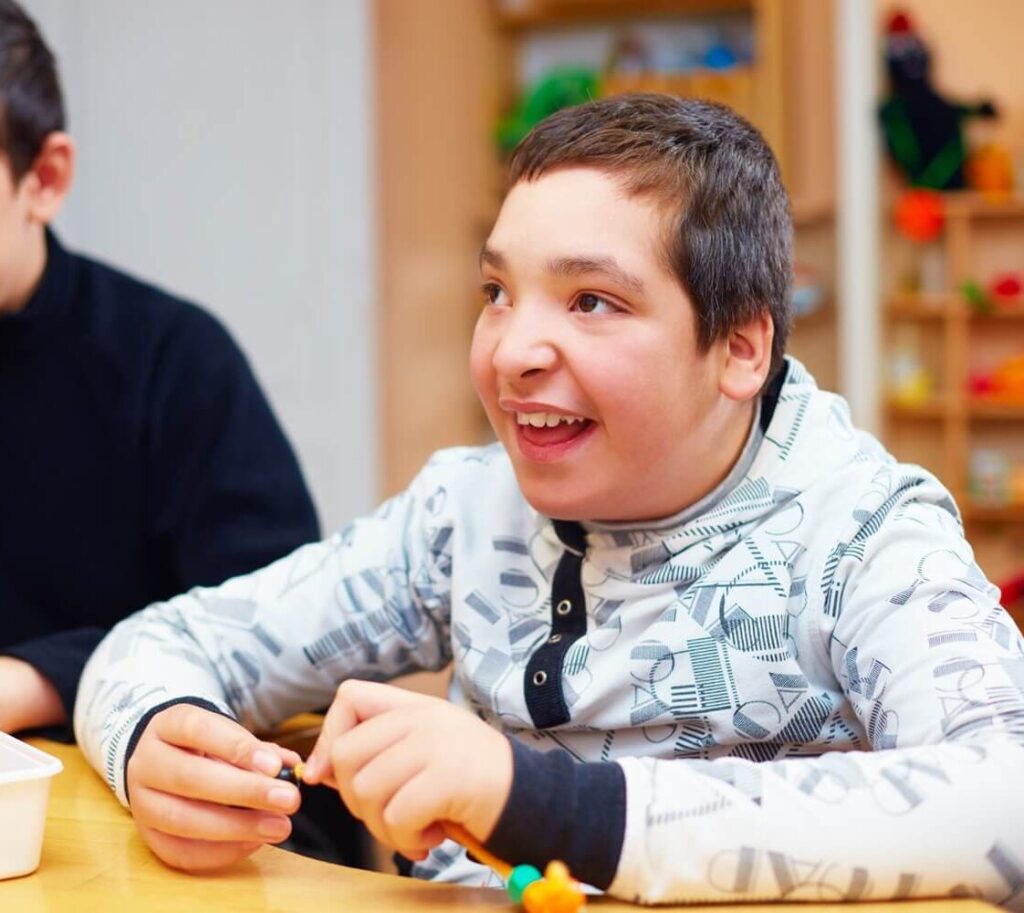We’re taking a look at the challenges the siblings of a child with a disability can face, and the things you can do to support them.
Around half a million children in the UK have a brother or sister with a disability. Having a sibling with a disability can help children develop strength, resilience and empathy for others because of living with and helping to care for their sister or brother. They’re also likely to be less judgemental in later life when they meet other people who look or behave a little differently.
As a parent or carer, it’s important to remind yourself of these positive outcomes, while also acknowledging that growing up with a sibling with autism and ADHD can also be confusing.
The challenges of having a sibling with autism and ADHD
Life may not feel very fair for children who have a neurodivergent sibling, and children feel unfairness very keenly. Boundaries and rules can appear inconsistent. They may feel that their autistic brother or sister gets more attention, or doesn’t get told off quite as much.
Your child may also believe they could go out and do more fun things as a family if it wasn’t for the extra difficulties of their sibling with ADHD. They may feel unable to invite a friend back to the house. It may appear that there isn’t any time left for parents/carers to help with their homework or support their activities.
There could be times when they’re in stressful situations at school. They might feel pressure to advocate for their brother or sister without having the knowledge or skills to do so. And they may not even fully understand what autism or ADHD means for their sibling, and need additional support with this.

What your child may be thinking
This can lead to a lot of emotional challenges for siblings. What thoughts might be going through their heads?
- “I hate you sometimes, but I love you most of the time.”
- “I resent you at times, but I then feel guilty about feeling this way.”
- “I feel embarrassed in school at times because of some of your behaviour, but I will fight anyone who says something mean about you.”
- “Maybe I should copy some of your behaviour and get my share of the attention.”
- “You cause so many problems for mum and dad that I need to be the perfect child.”
This is a lot of emotional turmoil for a child or young person to handle. So how can we support those siblings who are finding life a bit of a rollercoaster?
Let your child talk to you or another trusted adult
Allow siblings to talk openly, even if they express negative feelings. They’re entitled to their feelings and need an outlet for these, even if some of the things they say are difficult to hear.
Think about whether it may be easier for them to express some of this to a grandparent, aunt, uncle or a family friend. Alternatively, your GP may be able to recommend a suitable counsellor. Your child may not be able to be entirely honest with you due to worrying about hurting your feelings.
Make sure your child and their school is well-informed
Give your child as much information as you can about their sibling’s additional needs, in language they can understand.
Remember to tell the school if your child has an autistic sibling, or a sibling with ADHD. Your child may:
- be late for school if their autistic brother or sister is struggling with the morning routine
- be tired at school because their sibling doesn’t sleep much or disturbs their night’s sleep
- struggle with homework if they don’t have a quiet space at home
- become withdrawn or anxious at school if their sibling has meltdowns at home.
The school will need to know about your child’s circumstances to support them, and so your child doesn’t get into trouble for things that are beyond their control. The school will also be able to provide opportunities for talking.
Allow siblings to talk openly, even if they express negative feelings.
Spend time together one-to-one
We know it’s hard, but try to find some one-to-one time each week for a sibling, even if it’s a short time. Make a point of attending siblings’ important events such as sports days or school plays, even if you have to arrange childcare for your disabled child. Think about how you praise your neurodiverse child for effort and not just achievement and look for opportunities to praise his or her siblings in the same way.
Try to find activities which the whole family can enjoy together, but also make sure that your neurodivergent child’s siblings get some respite and get involved in their own activities away from home.
Try a Young Carer’s support group
Look into Young Carer’s support groups in your area. Some siblings find it helpful to meet other young carers to share difficult emotions in a supportive environment.
And because a sibling of a neurodivergent child can be considered a young carer, even if they’re not actively caring, they’re entitled to a carer’s assessment.
Find out more about being a young carer and getting a young carer’s assessment in the NHS guidance: Being a young carer.
This article was written in collaboration with Norfolk & Waveney Autism and ADHD Support Service. Use our online service finder for SEND and neurodiversity services in your area.

Call, text, email or web chat FamilyLine
If you’re feeling overwhelmed, worried or upset about any aspect of your family life, FamilyLine is here for you. We offer free emotional support and guidance on family relationships, conflict, parenting, caring, financial worries and more.
Contact FamilyLine

